
Composer Frederic Rzewsk is known for his associations with John Cage, Karlheinz Stockhausen, Alvin Curran & Richard Tietelbaum, &c.; he wrote a number of text pieces for solo piano about life, philosophy and politics, many premiered by pianist and narrator Stephane Ginsburgh, who here presents seven such compositions, several written for Ginsburgh himself.
Out of Stock
Quantity in Basket: None
Log In to use our Wish List
Shipping Weight: 3.00 units
Sample The Album:
Frederic Rzewski-composer
Stephane Ginsburgh-piano, voice
Click an artist name above to see in-stock items for that artist.
UPC: 5411867115236
Label: Sub Rosa
Catalog ID: SR 523CD
Squidco Product Code: 31489
Format: CD
Condition: New
Released: 2022
Country: Belgium
Packaging: Digipack
Recorded at Concertgebouw Brugge, in Brugge, Belgium, on November 25th and 26th, 2020, by Yannick Willox.
"Released in Sub Rosa's U01. De Profundis nclassical series. "This album is the result of years of work and friendship with the composer. It started with 'De Profundis', a piece which has had a deep impact on me as a musician and a person, and ended with it. Frederic attended many of my performances of the piece, the last one during our last public concert together in early 2020 in Brussels. In the meantime, he wrote 'Dear Diary' (2014) and 'America: A Poem' (2020) for me which were both premiered at Ars Musica festival. I am very happy to present these pieces to you." -Stephane Ginsburgh
Frederic Rzewski (1938-2021)
Frederic Rzewski was born in Westfield/Massachusetts in 1938.He had his first piano lessons at the age of three and began composing music at a very early age. He initially studied piano with Charles Mackey in Springfield and went on to study composition with Walter Piston (orchestration) and Randall Thompson at Harvard University and with Roger Sessions and Milton Babbitt at Princeton University, where he also took courses in philosophy and Greek. A Fulbright-Scholarship enabled him to study with Luigi Dallapiccola in Florence in 1960/61. His musical collaboration with Dallapiccola marked the beginning of his career as a pianist for contemporary piano music. His friendship with Christian Wolff and David Behrman and his acquaintance with John Cage and David Tudor influenced his development, both as a composer and as a pianist.
During the 1960s, Rzewski taught and took part in the first performances of Karlheinz Stockhausen's 'Klavierstück X' (1962) and 'Plus Minus' (1964). From 1977 to 2003, he was a professor for composition at the Conservatoire Royal in Liège/Belgium. He also taught at various other universities, among them Yale University, the California Institute of the Arts and the Berlin University of the Arts. Through the live electronics ensemble Musica Elettronica Viva, founded by Rzewski together with Alvin Curran and Richard Teitelbaum in Rome in 1966, he was introduced to politically active colleagues and jazz musicians. The music of the ensemble is distinguished by elements of improvisation and the use of electronic live instruments. The aim was to revolutionise contemporary thinking about classical composition and performance.
These musical experiences with the ensemble are reflected in Rzewski's compositions of the late 1960s and the 1970s. They combine elements both from improvised and composed music. After his return to New York in the early 1970s, his politically outspoken compositions probably made it difficult for him to obtain a long-term teaching position in the US. Since 1976, he has been living mainly in Rome and Brussels. During the 1970s, he continued to experiment with forms that treat style and language as structural elements. His best-known work from the 1970s is 'The People United Will Never Be Defeated!', a 50-minute-long composition featuring 36 piano variations on a song by Chilean composer Sergio Ortega. Frederic Rzewski lived and worked in Brussels. He left us on June 24, 2021 in his Italian home in Montiano.
Stephane Ginsburgh (1969)
A tireless surveyor of the repertoire but also explorer of new combinations including voice, percussion, performance or electronics, Stephane Ginsburgh performs as a soloist in many international festivals such as Ars Musica (Brussels), Quincena Musical (San Sebastian), ZKM Imatronic (Karksruhe), Agora (Paris), Bach Academie Brugge, Ultima Oslo, Darmstadt Internationale Ferienkurse, Gaida (Vilnius), Warsaw Autumn, Klara Festival (Brussels), Festival Forum (Moscow) and Musica Strasbourg. He has collaborated with many contemporary composers such as Frederic Rzewski, James Tenney, Philippe Boesmans, Jean-Luc Fafchamps, Stefan Prins or Matthew Shlomowitz as well as with choreographers such as Anne Teresa de Keersmaeker (Rosas) and visual artists such as Peter Downsbrough and Kurt Ralske. Ginsburgh has recorded for Sub Rosa, Naxos, Cypres, Kairos and World Edition. He likes immersive programs offering integrals: Prokofiev's Sonatas, Beethoven's last Sonatas, Rachmaninov's Etudes-Tableaux. Ginsburgh holds a Masters in Music and studied piano with Paul Badura-Skoda, Jerome Lowenthal, Vitaly Margulis and Claude Helffer. He also holds a Bachelor in Philosophy of Science from U.L.B. and a Doctorate in Arts from V.U. of Brussels.
Artist Biographies
• Show Bio for Frederic Rzewski "Frederic Anthony Rzewski (born April 13, 1938 in Westfield, Massachusetts) is an American composer and virtuoso pianist. Rzewski (pronounced zheff-skee) began playing piano at age 5. He attended Phillips Academy, Harvard and Princeton, where his teachers included Randall Thompson, Roger Sessions, Walter Piston and Milton Babbitt. In 1960, he went to Italy, a trip which was formative in his future musical development. In addition to studying with Luigi Dallapiccola, he began a career as a performer of new piano music, often with an improvisatory element. A few years later he was a co-founder of Musica Elettronica Viva with Alvin Curran and Richard Teitelbaum. Musica Elettronica Viva conceived music as a collective, collaborative process, with improvisation and live electronic instruments prominently featured. In 1971 he returned to New York. In 1977 Rzewski became Professor of Composition at the Conservatoire Royal de Musique in Liège, Belgium, then directed by Henri Pousseur. Occasionally he teaches for short periods at schools and universities throughout the U.S. and Europe, including Yale University, the University of Cincinnati, the California Institute of the Arts, the University of California, San Diego, the Royal Conservatory of The Hague and Trinity College of Music, London. Many of Rzewski's works are inspired by secular and socio-historical themes, show a deep political conscience and feature improvisational elements. Some of his better-known works include The People United Will Never Be Defeated! (36 variations on the Sergio Ortega song El pueblo unido jamás será vencido), a set of virtuosic piano variations written as a companion piece to Beethoven's Diabelli Variations; Coming Together, which is a setting of letters from Sam Melville, an inmate at Attica State Prison, at the time of the famous riots there (1971); North American Ballads; Night Crossing with Fisherman; Fougues; Fantasia and Sonata; The Price of Oil, and Le Silence des Espaces Infinis, both of which use graphical notation; Les Moutons de Panurge; and the Antigone-Legend, which features a principled opposition to the policies of the State, and which was premiered on the night that the United States bombed Libya in April 1986. Among his most recent compositions, the most interesting are the Nanosonatas (2006~2010) and the Cadenza con o senza Beethoven (2003), written for Beethoven's Fourth Piano Concerto. Rzewski played the solo part in the world premiere of his piano concerto at the 2013 BBC Proms. Nicolas Slonimsky (1993) says of him in Baker's Biographical Dictionary of Musicians: "He is furthermore a granitically overpowering piano technician, capable of depositing huge boulders of sonoristic material across the keyboard without actually wrecking the instrument." " ^ Hide Bio for Frederic Rzewski • Show Bio for Stephane Ginsburgh "Stephane Ginsburgh has been praised for his daring piano playing and appears regularly in recitals and chamber music worldwide. He has performed at numerous festivals such as Ars Musica, Quincena Musical, ZKM Imatronic, Agora, Bach Academie Brugge, Ultima Oslo, Darmstadt Ferienkurse, Gaida (Vilnius), Warsaw Autumn, Musica Strasbourg and Klara Festival. His next season performances will take him to Les Nuits Botanique, Festival Musiq3, Ars Musica, Impuls and Festival Musique Action. A tireless surveyor of the repertoire but also exploring new combinations including voice, percussion, performance or electronics, he dedicates much of his energy to contemporary music. He regularly plays with the Ictus Ensemble, has collaborated with many composers such as Frederic Rzewski, Jean-Luc Fafchamps, Stefan Prins and Matthew Shlomowitz of whom he premiered works, as well as with choreographers and visual artists. Stephane Ginsburgh loves immersive performances and has played Prokofiev's complete piano sonatas in one evening. Stephane Ginsburgh recorded Feldman, Duchamp, Satie, Fafchamps for Sub Rosa. He recorded the world premiere of two pieces by David Toub for World Edition. His Prokofiev complete piano sonatas are released on Cypres Records in 2015. In 2018, Grand Piano/NAXOS published his recording of the world premiere of the "Bad-Tempered Electronic Keyboard", a series of 24 Preludes and Fugues by the composer and writer Anthony Burgess. His most recent release in 2019 is "Piano Hero" which is included in an album dedicated to the music of Stefan Prins on Kairos. His upcoming recordings for Sub Rosa include one CD with Julius Eastman's complete music for four pianos and another one with pieces for speaking pianist by Frederic Rzewski. He is a laureate of the Tenuto competition 1995 and has received the Pelemans Prize in 1999 from the Belgian composers union for his dedication in performing Belgian contemporary music. In 1998, Stephane Ginsburgh co-founded SONAR (previously le Bureau des Arts), a group of artists dedicated to different types of artistic expression and creation including music, dance and literature, which he directed until 2018. He has also been artistic director of the Centre Henri Pousseur, an electronic music studio in Liège, from 2010 until 2013. He taught piano and chamber music at the Royal Conservatories in Brussels, Mons and Liège. He is a professor at the Dalcroze Institute in Brussels. After completing his studies at the Conservatory with a master in music, he worked with Paul Badura-Skoda, Claude Helffer, Jerome Lowenthal and Vitaly Margulis. Stephane Ginsburgh also holds a BA in philosophy of science from the Free University of Brussels (U.L.B.) and a DMA (PhD in the Arts) from the Vrije Universiteit Brussel en Koninklijk Conservatorium Brussel." ^ Hide Bio for Stephane Ginsburgh
11/20/2024
Have a better biography or biography source? Please Contact Us so that we can update this biography.
11/20/2024
Have a better biography or biography source? Please Contact Us so that we can update this biography.
Track Listing:
1. De Profundis (1992) 31:35
2. America : A Poem (2020) 30:15
3. Stuporman 4:22
4. Names 3:01
5. No Good 2:05
6. Samson 2:22
7. Thanks 4:06
Compositional Forms
Piano & Keyboards
Unusual Vocal Forms
Spoken Word
Solo Artist Recordings
Avant-Garde
New in Compositional Music
Search for other titles on the label:
Sub Rosa.


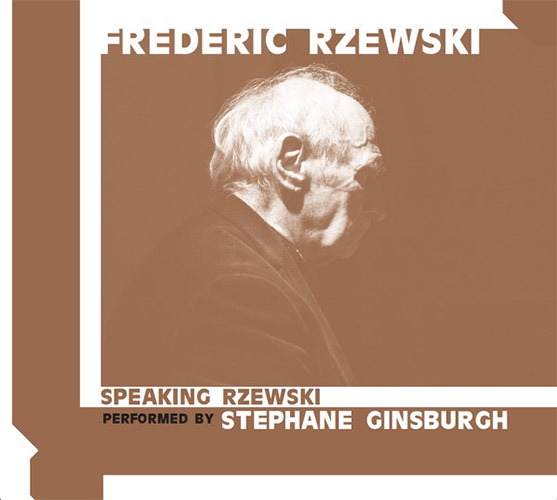

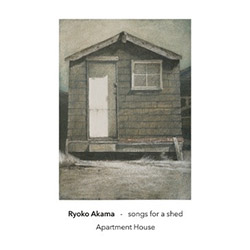

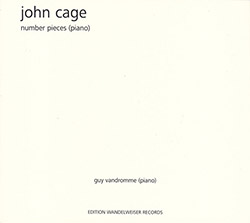
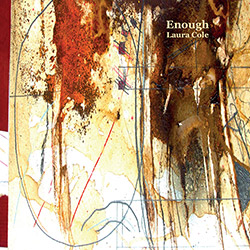

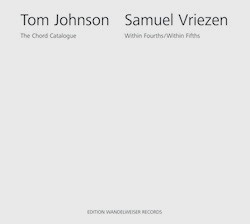

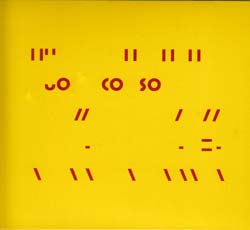

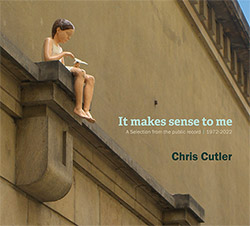

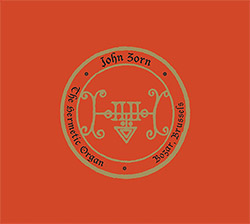
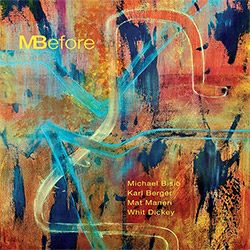
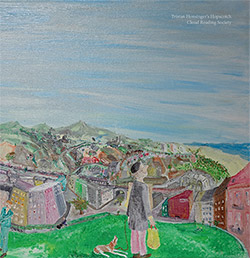

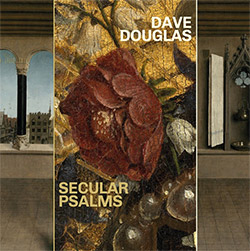
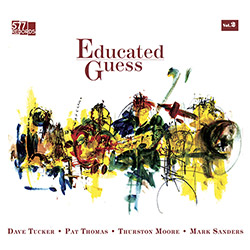


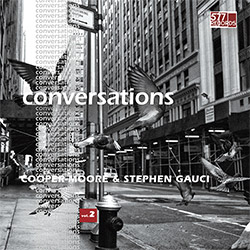

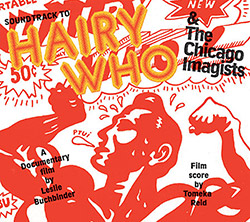
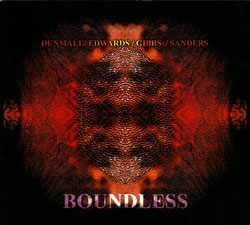
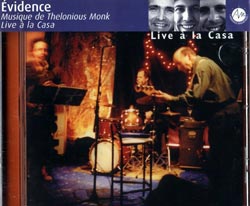


![Guy, Barry / Ken Vandermark: Occasional Poems [2 CDs]](https://www.teuthida.com/productImages/misc4/34849.jpg)
![Novoa / Carter / Mela Trio: Vol.1 [VINYL]](https://www.teuthida.com/productImages/misc4/35236.jpg)


![Elephant9 : Mythical River [VINYL]](https://www.teuthida.com/productImages/misc4/34624.jpg)
![Evans, Peter (Evans / Eldh / Black): Extra [VINYL]](https://www.teuthida.com/productImages/misc4/35279.jpg)

![McPhee, Joe: Straight Up, Without Wings [BOOK]](https://www.teuthida.com/productImages/misc4/35454.jpg)
![Jeck, Philip: rpm [2 CDs]](https://www.teuthida.com/productImages/misc4/35455.jpg)













![Barker / Parker / Irabagon: Bakunawa [VINYL]](https://www.teuthida.com/productImages/misc4/35533.jpg)
![Blaser, Samuel / Marc Ducret / Peter Bruun: Dark Was The Night, Cold Was The Ground [VINYL 10-inch]](https://www.teuthida.com/productImages/misc4/35492.jpg)








![Warren, Kenny (Warren / Hoffman / Ellman): Sweet World [VINYL]](https://www.teuthida.com/productImages/misc4/35451.jpg)




![Blake, Ran / Dave Knife Fabris: Live Amsterdam 2006, First Visit [CD + POSTCARDS]](https://www.teuthida.com/productImages/misc4/35275.jpg)













![DNS: Taking Big Bites Of The Khandas Three Cafes Deep [2 CDs]](https://www.teuthida.com/productImages/misc4/35334.jpg)




![Cleaver, Gerald: The Process [VINYL]](https://www.teuthida.com/productImages/misc4/34966.jpg)




![Alva Noto: HYbr:ID II [VINYL 2 LPs]](https://www.teuthida.com/productImages/misc4/35201.jpg)

![Baron, Derek / Luke Martin: Distinct and Concealed [CASSETTE + DOWNLOAD]](https://www.teuthida.com/productImages/misc4/35079.jpg)

![Lyle, Erica Dawn : Colonial Motels [CASSETTE + DOWNLOAD]](https://www.teuthida.com/productImages/misc4/35080.jpg)









![Sanna, Claudio: Compositori Sardi Contemporanei II [2 CDs]](https://www.teuthida.com/productImages/misc4/35317.jpg)







![Zurria, Manuel: Fame di Vento [3 CDs]](https://www.teuthida.com/productImages/misc4/35167.jpg)

![Granberg, Magnus / Nattens Inbrott / Skogen: Holde Traume, Kehret Wieder! [2 CDs]](https://www.teuthida.com/productImages/misc4/35038.jpg)
![Frey, Jurg: Outermost Melodie [2 CDs]](https://www.teuthida.com/productImages/misc4/35039.jpg)

![Pavone, Jessica: Reverse Bloom [VINYL]](https://www.teuthida.com/productImages/misc4/34895.jpg)




![Modney (Modney / Wooley / Gentile / Roberts / Pluta / Symthe / ...): Ascending Primes [2 CDs]](https://www.teuthida.com/productImages/misc4/34852.jpg)









![Elephant9 with Terje Rypdal: Catching Fire [VINYL 2 LPs]](https://www.teuthida.com/productImages/misc4/35355.jpg)
![Deerlady (Obomsawin, Mali / Magdalena Abrego): Greatest Hits [VINYL]](https://www.teuthida.com/productImages/misc4/34876.jpg)




![Haino, Keiji: Black Blues [2 CDs]](https://www.teuthida.com/productImages/misc4/35109.jpg)



![Surplus 1980: Illusion of Consistency [CD]](https://www.teuthida.com/productImages/misc4/35069.jpg)
![Staiano, Moe: Away Towards the Light [VINYL + DOWNLOAD]](https://www.teuthida.com/productImages/misc4/35037.jpg)



![Caveira (Gomes / Sousa / Abras / Ferrandini): Ficar Vivo [VINYL]](https://www.teuthida.com/productImages/misc4/34643.jpg)
![Gregg, J. J. / David Van Auken: Lunar Prairie [CD w/ DOWNLOAD]](https://www.teuthida.com/productImages/misc4/34611.jpg)

![Coultrain: Mundus [VINYL]](https://www.teuthida.com/productImages/misc4/32439.jpg)
![Mattin: Songbook #6 [VINYL]](https://www.teuthida.com/productImages/misc4/27317.jpg)
![Punkappella: Wake Up [7-inch VINYL]](https://www.teuthida.com/productImages/misc4/17519.jpg)
![Residents, The: WARNING: UNiNC.: Live And Experimental Recordings 1971-1972 [VINYL 2 LPs]](https://www.teuthida.com/productImages/misc4/31521.jpg)
![Coultrain: Phantasmagoria [VINYL]](https://www.teuthida.com/productImages/misc4/30142.jpg)
![Lennon, Sean Ono: Asterisms [VINYL]](https://www.teuthida.com/productImages/misc4/34517.jpg)

![Coley, Byron: Dating Tips for Touring Bands [VINYL]](https://www.teuthida.com/productImages/misc4/17906.jpg)

![Lost Kisses: My Life is Sad & Funny [DVD]](https://www.teuthida.com/productImages/misc4/lostKissesDVD.jpg)